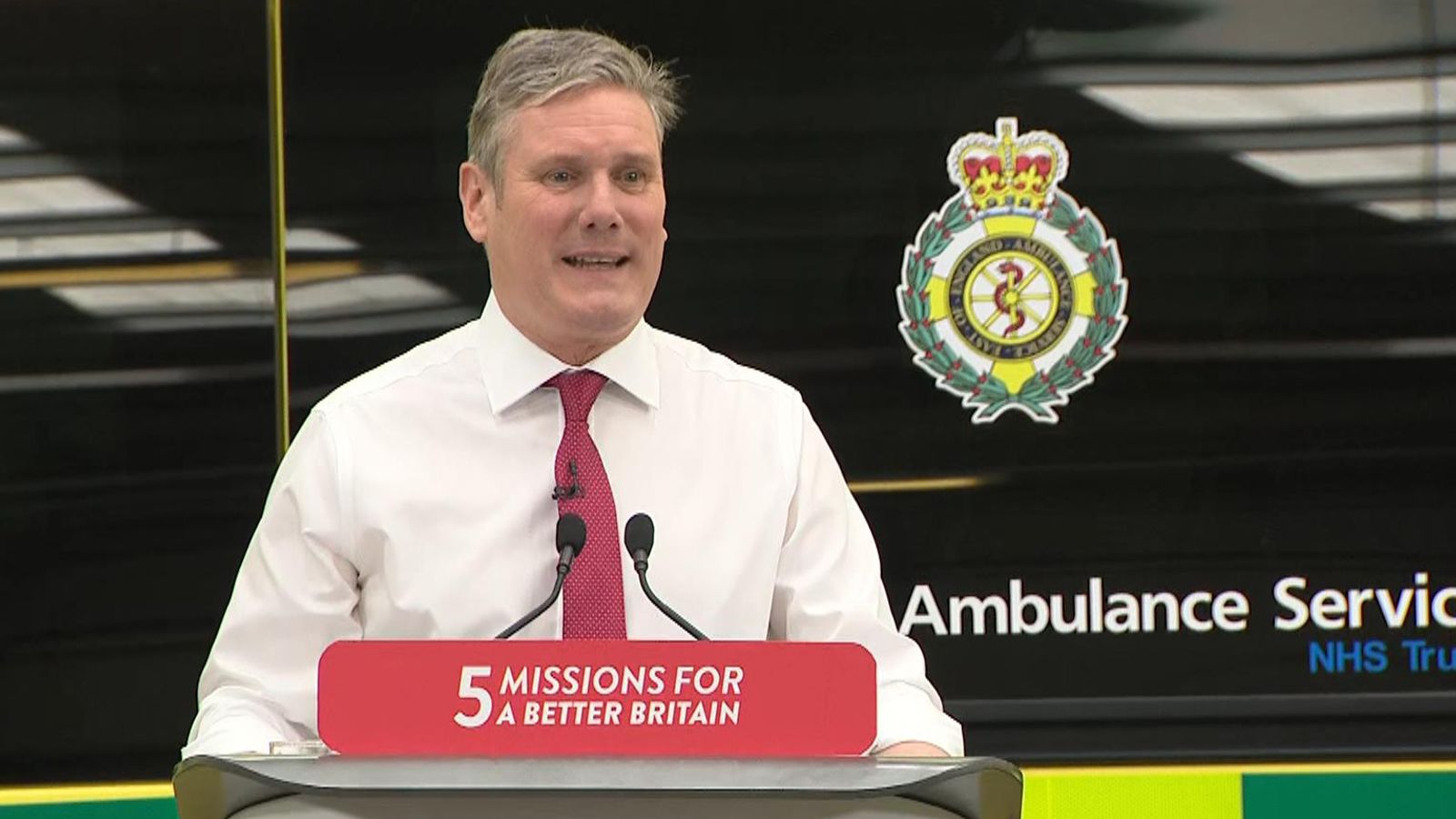‘It’s not all about money’: Starmer questioned on how ‘five missions’ plan for NHS will be funded

Keir Starmer has come under scrutiny over how he will fund the vast reforms he is planning to get the NHS “back on its feet”.
The Labour leader gave a news briefing in Essex where he laid out his vision for the future of the NHS, as well as specific policy proposals and pledges for what his government would do if it wins power at the next election.
The NHS formed one of the five missions Sir Keir laid out in February that will be the core of his election manifesto heading into 2024.
They are:
In his speech, Sir Keir set out three goals for the NHS, including that it would be “fit for purpose” by pledging that ambulances will arrive within seven minutes for cardiac arrest, four-hour waiting targets will be met in A&E and GPs will have the highest satisfaction rate on record under a Labour government.
The second focused on inequalities, with Sir Keir promising to “improve healthy life expectancy for all” and to halt the inequality gap between different regions of England.
And the third was centred on the “three killers”
The Labour leader said the party would get heart attacks, cardiovascular disease and strokes down by a quarter in a decade and that 75% of all cancer is diagnosed at stage one or two.
Finally, he promised to reverse current rates of suicide – the biggest cause of death in men in England under the age of 50.
Advertisement
“Suicide is the biggest killer of young lives in this country, the biggest killer. That statistic should haunt us. And the rate is going up. Our mission must be and will be to get it down” he said.
Shortly after he outlined his ambitions, Sir Keir faced questions from journalists on how his targets and reforms for the NHS would be funded.
Asked whether whether more money would go into the NHS under his leadership, Sir Keir replied that money was “part of the solution” but added: “It’s not “all about money”.
“Technology could do what money can’t do,” he added, saying his mission was to make an NHS that is “fit for the future”.
He was also asked about pay for NHS staff, to which he said there will be the “biggest increase in training” in the history of the health service.
“I know NHS staff pretty well, my wife is one of them. They want to know they’re fully supported. They want to know they are respected. They want to know there’s a plan for the future,” he said.